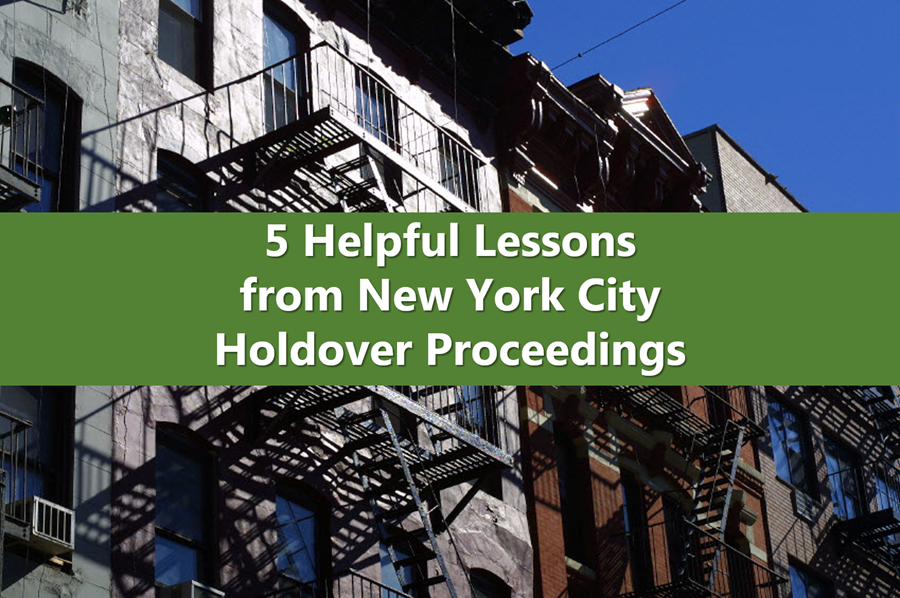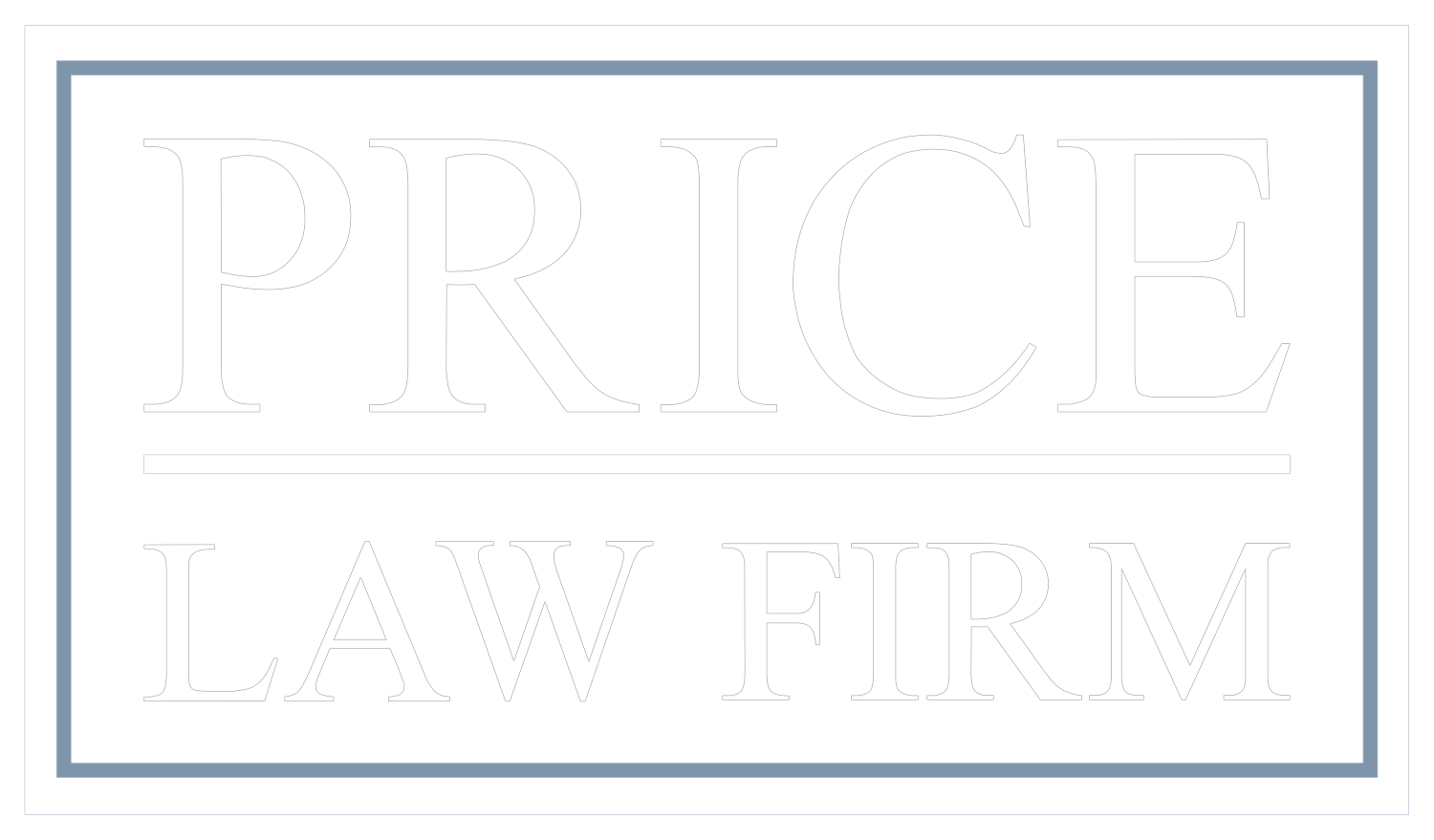
5 Helpful Lessons from NY Holdover Proceedings

Whether you’re a landlord looking to take possession of an apartment – due to chronic non-payment, non-primary residence issues or a lease violation – or you’re a tenant facing eviction the lessons learned from these five real New York cases provide useful insight for those currently (or soon-to-be) involved in a holdover proceeding.
Lesson #1: A legal fees clause in a lease can drag a case on longer than necessary
The losing party often has to pay the prevailing party’s legal fees in landlord-tenant cases where there is a legal fees clause involved in a lease. The language of this type of clause is typically written in the landlord’s favor. This means that if the tenant loses the case, the tenant must pay the landlord’s legal fees.
Tenants will be happy to know that a New York State statute provides that in such situations there is an implied reciprocity, so if, in these cases the tenant wins, the landlord is responsible for paying the tenant’s legal fees.
This helps explain why so many landlord-tenant cases can be difficult to settle and drag on, litigating until the end because the stakes are so high.
Lesson #2: Make sure required repairs are made before starting a chronic non-payment proceeding
Landlords should make sure the tenant has no justification for their failure to pay the rent before commencing a chronic non-payment proceeding.
A chronic non-payment proceeding will fail if the tenant’s failure to pay the rent was due to the landlord’s failure to perform repairs.
Lesson #3: Courts can rule in favor of a tenant in default of settlement payments
Landlords settling a chronic non-payment holdover proceeding should be sure to include “time is of the essence” language in a stipulation calling for payments to be made in installments. This wording – “all payments must be made with time being of the essence” – indicates that slight defaults will not be forgiven. If this language isn’t included, the court may rule in favor of a delinquent tenant.
Lesson #4: Landlords may lose out on fair market use and occupancy even if they win their case
Use and occupancy is a term that describes the monthly rent paid by the tenant to the landlord during litigation.
Landlords accepting use and occupancy at the current rent (usually the amount of rent written in the lease) without including a provision stating that use and occupancy payments would be “without prejudice to a future claim for fair market use and occupancy” may unknowingly deprive themselves of fair market use and occupancy at the conclusion of a lawsuit.
Lesson #5: The “no pets” clause in a lease can be enforced on a pet-by-pet basis
Tenants shouldn’t assume that they won’t be evicted over a new pet when an apartment with a “no pets” rule waived the rule for another pet.
Landlords forced to ignore one illegal pet by missing the enforcement window shouldn’t assume that they must ignore the “no pets” clause in their lease when new pets appear in the same apartment.
Don’t leave your legal matters to chance. SCHEDULE A CONSULTATION OR CALL US AT (212) 675-1125 for a personalized consultation and let our experts guide you through every step of the process.
Joshua Clinton Price
Founder of The Price Law Firm LLC
Josh Price is a lawyer who is sought by clients with complicated cases because of his extensive knowledge of the law and his ability to help the law evolve.
Search an article
Contact Us for a
FREE Consultation
Blog (Website Form)

Facing a real estate issue?
Contact us to schedule a consultation and get expert legal advice tailored to your specific needs and circumstances.
OR CALL US NOW AT:
SHARE THIS ARTICLE:
Recent Posts
Get Expert Legal Advice











